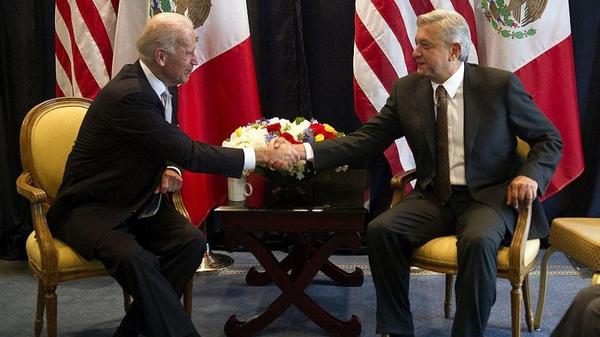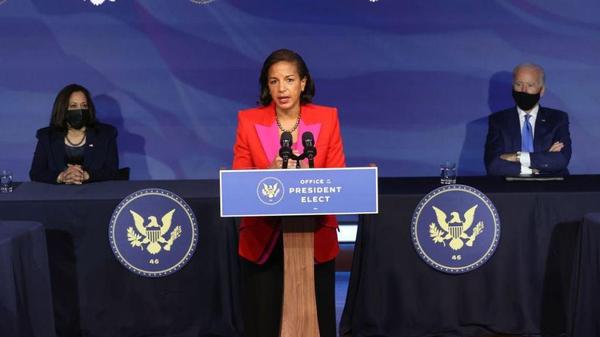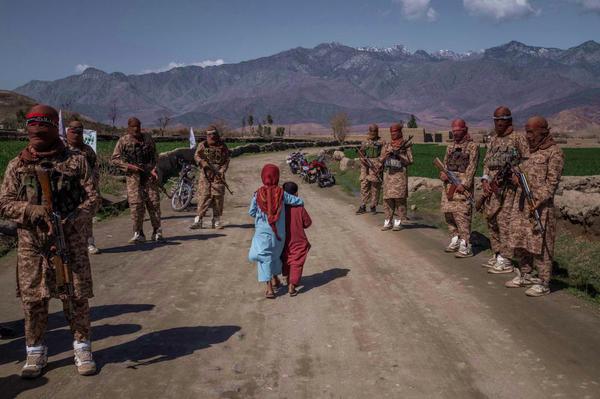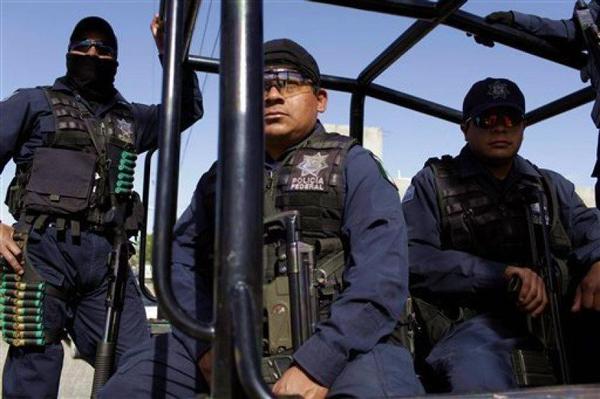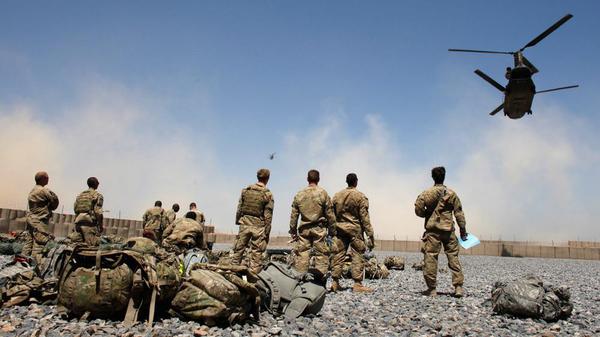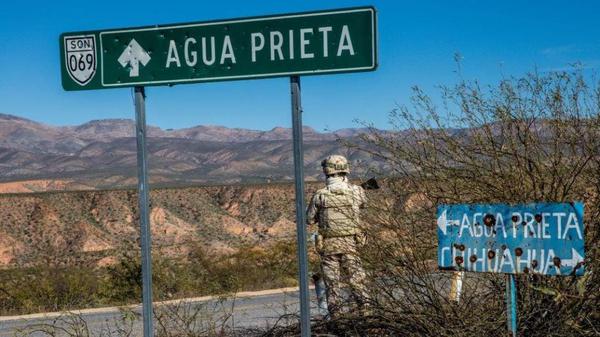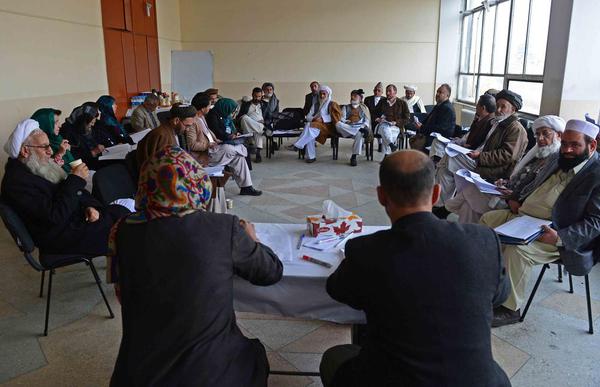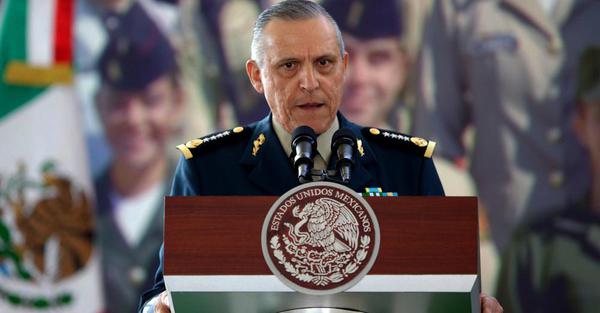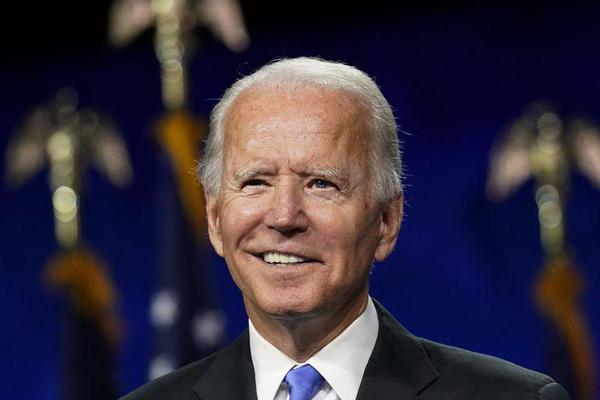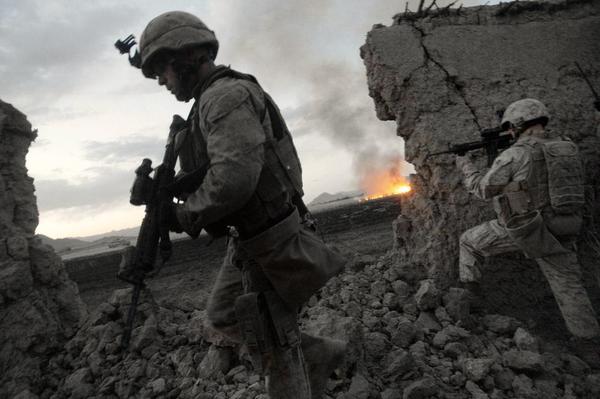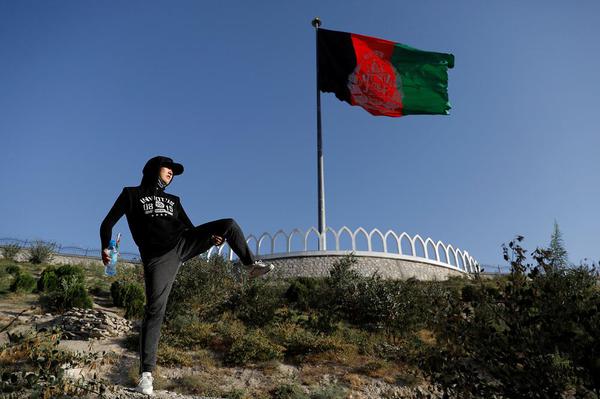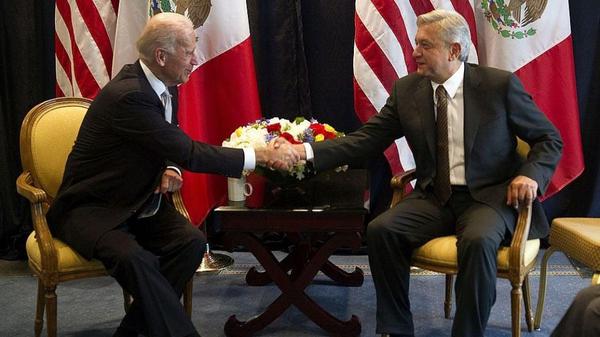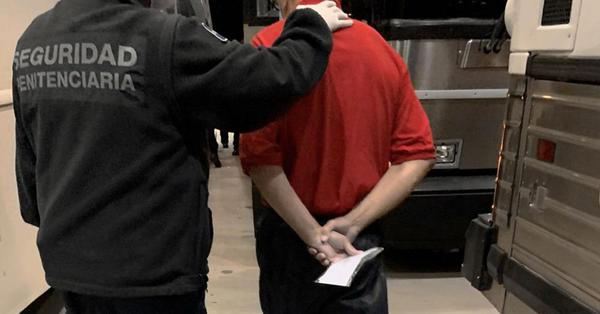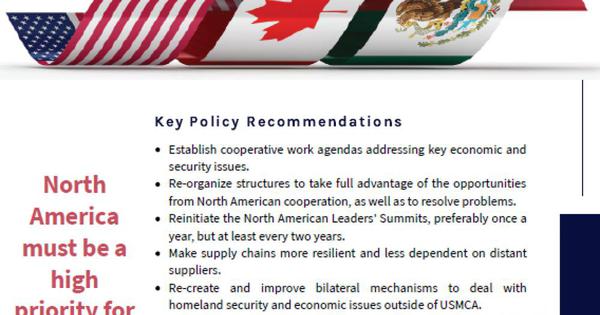
Fulfilling North America's Promise
Key Policy Recommendations
• Establish cooperative work agendas addressing key economic and security issues.
• Re-organize structures to take full advantage of the opportunities from North American cooperation, as well as to resolve problems.
• Reinitiate the North American Leaders' Summits, preferably once a year, but at least every two years.
• Make supply chains more resilient and less dependent on distant suppliers.
• Re-create and improve bilateral mechanisms to deal with homeland security and economic issues outside of USMCA.
• Establish a multi-layered approach to North America that effectively incorporates the many stakeholders in North America's success.
• In the short-term, agendas should include COVID-19 management and recovery; strengthening supply chains; implementing USMCA; revisiting border security; bolstering law enforcement coordination; and rethinking migration management and aid to Central America.
• The medium- and longer-term agendas should include creating a shared vision and structures that enhance mutual prosperity and security, and a focus on issues such as climate change, “green” energy futures, workforce development, the deployment of new technologies, and more cooperative approaches to cybersecurity.
• Establish cooperative work agendas addressing key economic and security issues.
• Re-organize structures to take full advantage of the opportunities from North American cooperation, as well as to resolve problems.
• Reinitiate the North American Leaders' Summits, preferably once a year, but at least every two years.
• Make supply chains more resilient and less dependent on distant suppliers.
• Re-create and improve bilateral mechanisms to deal with homeland security and economic issues outside of USMCA.
• Establish a multi-layered approach to North America that effectively incorporates the many stakeholders in North America's success.
• In the short-term, agendas should include COVID-19 management and recovery; strengthening supply chains; implementing USMCA; revisiting border security; bolstering law enforcement coordination; and rethinking migration management and aid to Central America.
• The medium- and longer-term agendas should include creating a shared vision and structures that enhance mutual prosperity and security, and a focus on issues such as climate change, “green” energy futures, workforce development, the deployment of new technologies, and more cooperative approaches to cybersecurity.



